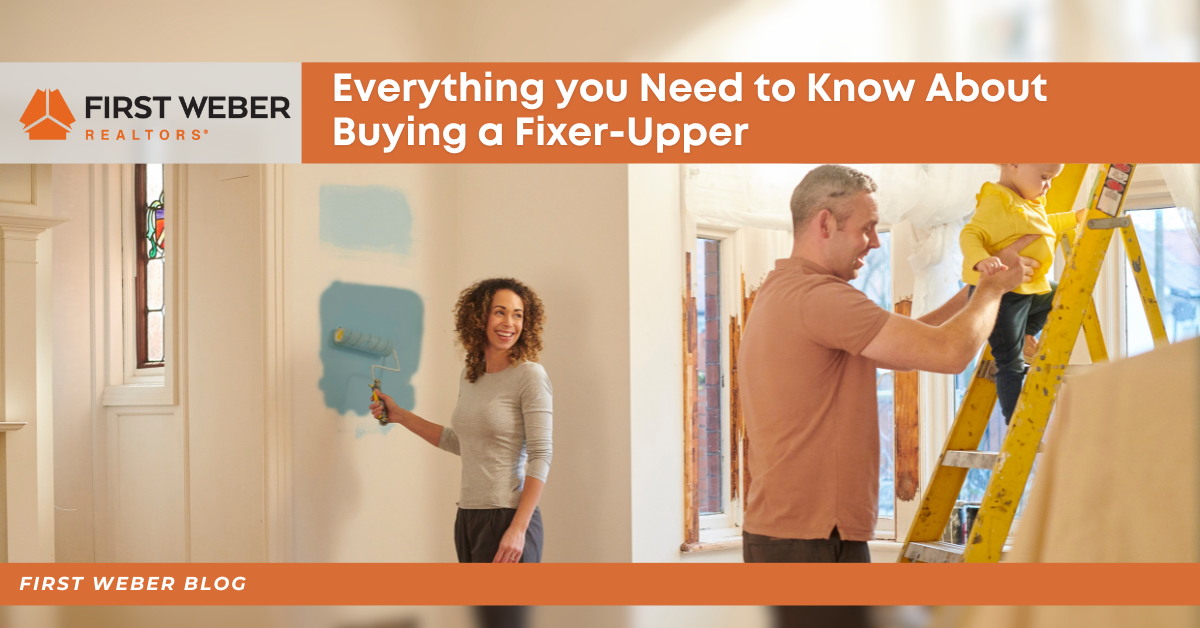Are you dreaming of transforming a rundown, outdated property into your dream home? Buying a fixer-upper has become a popular choice for those seeking a unique and affordable opportunity in the real estate market. Before you dive into this venture, it is important to equip yourself with the knowledge and insights that will set you up for success. In this post, we will talk through everything you need to know before buying a fixer-upper.
Before Buying
There are many factors to consider when deciding if tackling a fixer-upper is right for you. Consider your remodeling experience, your finances, and how much you want or need to renovate a home to make it livable. First, determine what your budget is and how you’ll finance both your purchase and renovations. Do your research on other homes in the area. You should be paying less for the property compared to move-in ready homes. A rule of thumb to follow is to spend 20 to 25% less than what a property in good condition would cost in that area. Even if you are planning on living in the home, you want to know confidently, that after your renovations are complete, you can sell the place for at least as much money as you put in (ideally more). Determine whether you will be able to live in the home as you are fixing it up, or have to find somewhere else to stay for the time being.
Before starting, determine what your must-haves are and where you are okay with compromising. Find a home with a floor plan that matches your needs and has the number of bedrooms and bathrooms you’re looking for. If you have to start moving walls around and creating new rooms, the project will become costlier.
Costs to Consider
There are many costs to consider when taking on a fixer-upper. Spend some time looking for fixtures prior to the purchase to get an idea of what your costs will really be like. If you will be purchasing substantial amounts of products, consider wholesalers for more savings. Estimate the cost of hiring a contractor. Remember to build in a buffer for unexpected issues and surprises, the recommendation is 10-20%. Remember that permits can also be expensive so take that into account when budgeting. Another cost to consider is if you will need to pay rent elsewhere while the updates are happening. You will want to know before purchasing what kind of fixes the property needs, whether it be primarily cosmetic updates or if there are foundation problems, which can be more expensive and challenging.
Easy Fixes Include:
- Patching walls, stripping wallpaper, and painting.
- Refinish floors and install new light fixtures and ceiling fans.
- Replacing baseboard or adding trim.
- Fixing broken windows.
- Replacing or painting cabinets.
- Replacing doors.
- Changing outlets and light switches.
- Painting the exterior.
- Adding a deck and landscaping.
More Expensive Fixes Include:
- Replacing HVAC systems or adding central air conditioning.
- Shoring up foundations.
- Replacing plumbing, sewer lines, and electrical wiring.
- Pouring concrete for driveways, sidewalks, or steps.
- Installing replacement windows.
- Complete kitchen or bath remodels.
- Building garages or additions.
- Fixing any termite and water damage.
Inspection
Before you purchase a house, have a thorough inspection completed to find any issues that can be spotted. You should have a contractor estimate how much the renovations will cost so you know what your budget will be. If you are able, schedule various contractors to view the home prior to buying to help give a realistic idea of how much the project will cost. Getting a contractor in the home before purchasing is worth the extra cost to avoid potentially large, unexpected fixes that will cost more in the long run.
Inspections recommended for fixer-upper homes
- Roof certifications
- Home warranty
- Pest inspections
- Sewer line inspections
- Engineering reports
A fixer-upper is a significant investment in both time and money. Taking these tips into consideration when deciding if a fixer-upper is right for you, will help you understand all the potential costs and risks associated with the project. By understanding and preparing for the challenges before starting, you will be able to better navigate the rewarding journey of transforming a neglected property into your dream home.
Visit our website, to start your home search.
Sources: Realtor.com, Today, U.S. News, The Spruce
Founded in 1971, First Weber Realtors® is a part of HomeServices of America, the nation’s largest provider of total home services. With 70 offices and more than 1,400 real estate professionals, First Weber is consistently number one in Wisconsin for unit sales and real estate sales volume.
